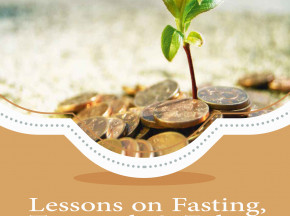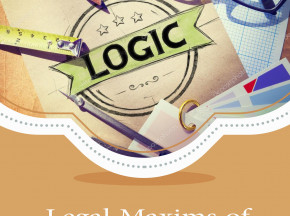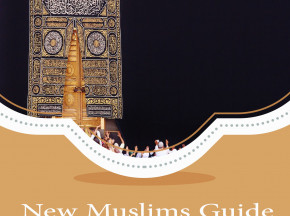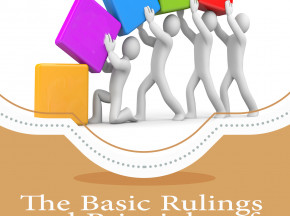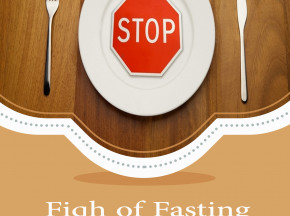content of level
Lessons on Fasting, Taraweeh & Zakaat
Lessons on Fasting, Taraweeh & zakaat: contains numerous beneficial points. Itis divided up into eight sections, which were designed to serve as lessons on distinct topics commonly talked about during the month of Ramadan.
The Wisdom behind the Islamic Laws Regarding Women
The Wisdom behind the Islamic Laws Regarding Women: A treatise presented for the Fourth United Nations World Conference on Women, held in Beijing, China
Principles of Islamic Jurisprudence
The book of Principles of Islamic Fiqh is a great book written by Muhammad Hashem Kamali to explain this field of knowledge in the English language. It contains lots of chapters such as: Islamic Ruling, Islamic evidences as the Quran, Sunnah, Consensus and analogy, and the Personal Reasoning.
Legal Maxims of Islamic Jurisprudence
This is the book of "Legal Maxims of Islamic Jurisprudence" that is studied at the Islamic University of North America (Mishkah). It presents the topic in a simple way. In the beginning, the book presents an accurate definition of the Islamic legal maxims and gives lots of examples on each rule.
New Muslims Guide to Hajj and Umrah
This is a gift for all the new Muslims who currently know the right path to Allah. This is a means to strength and preserve their belief.
Fiqh Made Easy
In this work, the world- renowned scholar of comparative fiqh, Dr. Saalih al-Sadlaan of Muhammad ibn Saud Islamic University discusses the most important issues of fiqh. In this work, the author has done an excellent job of concisely mentioning the most important aspects of the different fiqh topics he discussed. Furthermore, he has discussed many issues that are not greatly discussed in the English literature, such as the rules concerning bequests and endowments. Hence, this work was chosen to be translated as a welcomed addition to the available English literature.
Summarized Islamic Fiqh
This is one of the important summarized books which handle, discuss and explain the issues of monotheism, morals, Islamic manners and supplications along with the Islamic jurisprudence.
The Basic Rulings and Principles of Fiqh
In this book, Dr. Saleh As-Saleh explains only seven foundations out of sixty mentioned in the book of Sh. Abder-Rahman As-Se’di \”The Basic Rulings and Principles, and the Beneficial and Eloquent Classifications and Differentiations\”. The importance of this book stems from the nature of its content. This is because the scholars of Islam gave great importance to the study of the basic rulings and principles of fiqh so that they are able to encompass the various cases and refer these cases to the basic rulings and principles in order to deduct and apply the judgment in a comprehensive, yet precise manner.
Sharh ’Umdah al Fiqh
The Fiqh of Worship. The book of al-‘Umdah is an abbreviated book of Fiqh according to the hanbali school of Fiqh (madhhab).
Fiqh of Fasting
The prescribed book for the course is Subulus-Salaam by the 17th century Yemenite scholar Muhammad ibn Ismaa‘eel as-San‘aanee which is a commentary on Buloogh al-Maraam written by Haafiz Ibn Hajar al- ‘Asqalaanee. In Buloogh the author gathered the majority of the hadeeths which are commonly used as the basic evidences for the Islamic legal system. The course material is comprised of the Chapter on Fasting (Kitaab as-Siyaam) from Subulus-Salaam.
Fiqh us-Sunnah
Fiqh us-Sunnah
The Fiqh of Hajj for Women
A research paper discussing issues of Hajj & Umrah particular to women
Examples of pledges that must not be fulfilled
Any pledge to do something forbidden must not be fulfilled, such as pledging oneself to drink wine, making pledges to dead people or making pledges to glorify a grave or an object.
Pledges
A Nadhr is a pledge to do something for God’s sake, a Muslim is encouraged to do good deeds without making pledges, but if he makes a Nadhr he must fulfil his commitment.
Conditions for atonement
The atonement of an unfulfilled oath is a must if it is a valid one, done deliberately and the swearer did not do what he swore to do, provided that he did not make an exception.
Atonement for oaths
Atonement for oaths can be done by feeding 10 poor people, giving each of the 10 people a garment, or to set a slave free. If not attainable, the swearer should fast for 3 days.
Oaths and Pledges
There are 3 kinds of oaths: Idle oaths which are not accountable, confirmed ones which are accountable, and false oaths which are cardinal sins and cannot be atoned for.
Accidental killing
Accidental killing does not incur a punishment in the hereafter, while the ruling in this life is that indemnity is payable by the offender and his relatives in of 3 years.
Semi-deliberate killing, or manslaughter
The rule on semi-deliberate killing or manslaughter falls in between deliberate and accidental killing. The offender is to pay indemnity from his wealth to the victim's family.
The indemnity and its assessment
The important point when imposing a punishment is to be a deterrent, courts assess the indemnity payable according to the extent of the damage caused and suffering of the victim.

